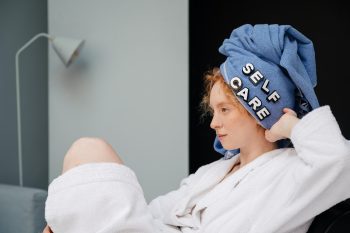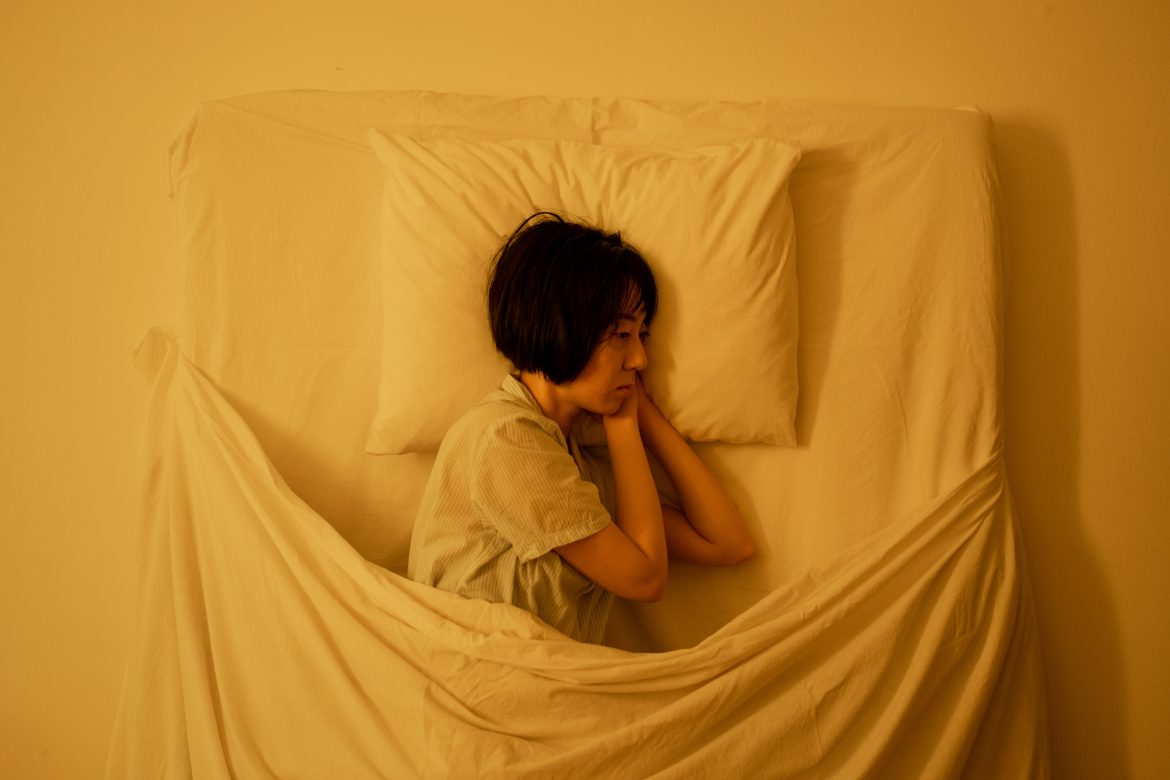I’m going to own up to something, in the hopes that this will reach someone out there who suffers from the same thing.
Health anxiety, formerly known as hypochondria, never used to be a part of my life. Despite always carrying an extra few kg, I was always healthy. When I reached my latter 20s though, a silent devil crept up on my shoulder and started whispering the most heinous, self-sabotaging thoughts. And he hasn’t left since.
Let’s talk about health anxiety.

Pexels
What is health anxiety?
According to Mayo Clinic’s website, health anxiety (otherwise known as illness anxiety disorder or hypochondria) is defined as the following:
“Worrying excessively that you are or may become seriously ill. You may have no physical symptoms. Or you may believe that normal body sensations or minor symptoms are signs of severe illness, even though a thorough medical exam doesn’t reveal a serious medical condition.”
In my case, my health anxiety was sparked by a combination of things. Not being fit, being overweight, and a rash I developed on my breast.
Of course, every woman would be alarmed by a rash on her breast, but even after seeing three doctors, a specialist and receiving an ultrasound that came back clear and confirmed my problem as a case of eczema, my mind would not relent. I became irrationally worried and obsessed that I may have a rare form of cancer.
Ever since, every symptom, as tiny as it may be, like a pimple, a mosquito bite, a sore neck from sleeping funny or an upset tummy all converge at a cross line in my mind: it must be cancer.
When you develop health anxiety, you become obsessed with checking your body, and Googling your symptoms. This turns into a habit, and leads to stealing hours away from your day. You spend so much time worrying and self-diagnosing fatal diseases, life fades into the background.
Dr. Timothy Scarella, an instructor in psychiatry at Harvard Medical School says the following:
“People with health anxiety for the most part tend to fear severe illness, such as HIV, cancer, or dementia. They worry far less about strep throat, twisting their ankle, or getting a cold.”
Health anxiety is known to affect about 4-5% of the world’s population, and can become debilitating if you don’t get it under wraps.
Signs of health anxiety
- You’re constantly concerned about your health, even when you’re leading a healthy lifestyle.
- You self-check obsessively, scoping your body for signs of illness. Lumps, bumps, rashes – you name it.
- You look for reassurance from others, and frequently bring up your concerns in conversation with loved ones.
- You become paranoid that your doctor and medical tests must have missed something.
- You consume health information online and in the media. Anything you can get your hands on. You’re always Googling symptoms.
- You’re triggered by media or content displaying serious health issues.
- You miss out on opportunities because you’ve convinced yourself you’re ill.
All of this worrying causes your anxiety to spike, which then introduces new symptoms like headaches or a racing heartbeat, which only adds to your predicament.

Pexels
How to deal with health anxiety
According to Dr. Scarella, frequent visits to the doctor for medical testing brings no reassurance for patients suffering from health anxiety. No amount of testing eases the worry, and it bounces back like a boomerang. It’s something you carry with you, that can only be addressed by doing the necessary work on your mind and body.
The most important thing to remember, is that you’re not alone, and what you’re feeling is treatable. There are mental health professionals trained to deal with health anxiety who will treat and prescribe meds to you accordingly. If you’re like me, and would rather go the natural route, there are ways to work around it.

Pexels
Here’s what has helped me
Be mindful of your body’s communications with you
One telltale trait of health anxiety is misinterpreting normal physical sensations as something more serious. Let’s say you had a workout the previous day and your arms are stiff. Health anxiety will have you believe that you must be suffering a heart attack or some sort of nerve disorder. Recognising your body’s normal response to activities and the environment will help you become more conscious of why you’re actually feeling the sensations you experience. The first step is to become more mindful.
Cut down on obsessive habits
This may take some practice, but you’ll get there. If you’re prone to Googling every sensation you feel multiple times a day, it’s a sign that you need to cut down, it has become a habit. More often than not, searching your symptoms on the internet will only lead you to dire conclusions. Be mindful of when you’ve got the urge to open up your browser, and practice an affirmation in its place. Tell yourself that nothing will come out of Googling this, other than heightening your anxiety.
The same goes for self-checking. There came a point where I checked the rash on my breast so obsessively, I injured myself. This exasperated the situation tenfold with new symptoms. If you’ve got a spot or a rash, don’t constantly check it, leave it alone! If it doesn’t clear up within a few days, then you have reason to visit your GP.
Be mindful of and challenge harmful thoughts that loop
What starts as a genuine health concern can develop into something bigger and more troubling, even after you’ve received reassurance from your doctor. If you’ve already been for medical check-ups and visited a professional, and they didn’t identify anything to worry about, work on eliminating the concern by being mindful of the thought every time it pops up.
Once you know you’re in a loop, it’ll be easier for you to curb the anxiety that comes with the thought.
Find support
Health anxiety is frightening when you’re dealing with it on your own.
I wouldn’t recommend finding a support group online, as this only made things worse for me. Reading about other people’s concerns and symptoms and how they struggle, made me more anxious.
It may work differently for you, but physical support is my go-to. When I’m feeling anxious, I call up a loved one who knows I suffer with health anxiety, and they help talk me through some of the irrational fears I’m experiencing. Educate your loved ones about health anxiety, so they can learn how to best assist you.
ALSO SEE:
Menstrual leave: are companies finally considering period equity for female employees?
Feature Image: Pexels

